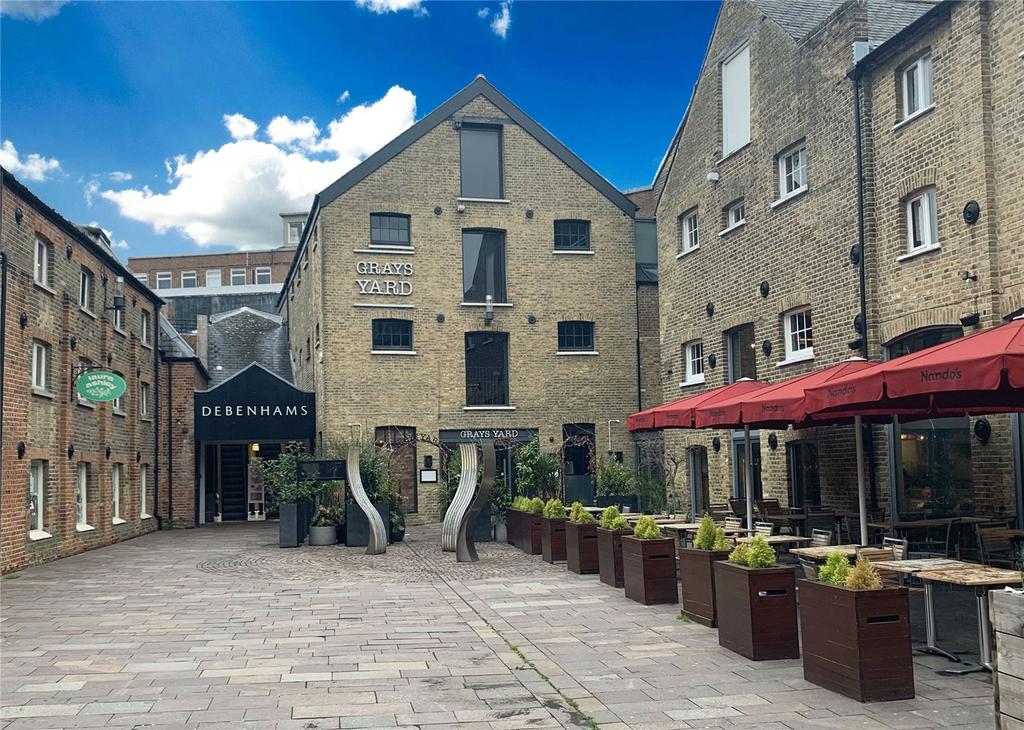It would be fair to say the pandemic has had enormous effects on the world of work, but it has come at a time when other factors were already ongoing. The decline of main-street shopping due to e-commerce has only been hastened. The shift to remote working has sky-rocketed. And people no longer want to commute 8am-6pm anymore. But we’ve also found that working from home isn’t all its cracked up to be. Plus, they don’t see the point of commuting into a big city, only to have to co-work in something like a WeWork, when they could just as easily have gone to something local. The problem is, there is rarely a local co-working space, especially in the suburbs or smaller towns.
If, instead, you could bring work nearer to home (rather than working from home) then, the theory goes, you’d get a more balanced lifestyle, but also get that separation between work and home so many people, especially families, still desire.
Now, a new UK startup has come top with a ‘decentralized workspace’ idea which it plans to roll out across the UK.
Patch will take empty local high street shops and turn them into “collaborative cultural spaces” with its ‘Work Near Home’ proposition aimed at traditional commuters. There are an estimated 6 million knowledge work commuters in the UK, and Patch will run on monthly subscriptions from these kinds of members.
It’s now raised a $1.1M Seed funding round from a number of leading UK angel investors including Robin Klein (cofounder of LocalGlobe), Matt Clifford (Cofounder of Entrepreneur First), alongside Charlie Songhurst, Simon Murdoch (Episode 1), Wendy Becker (former CEO Jack Wills and NED at Great Portland Estates), Camilla Dolan (founding partner of sustainable investor Eka Ventures), Zoe Jervier (talent Director for US investment firm Sequoia), and Will Neale (founder of Grabyo and early-stage investor).
Patch says its ‘Work Near Home’ idea is geared to the Post-Covid ‘hybrid working’ movement and it plans to create public venues, “with a focus of entrepreneurship, technology, and cultural programming.”
Each Patch location will offer a range of private offices, co-working studios, “accessible low-cost options” and free scholarship places.
Patch’s first site will open in Chelmsford, Essex in early November, and the startup says several more sites are planned for 2022. It says it has received requests from people in Chester, St Albans, Wycombe, Shrewsbury, Yeovil, Bury, and Kingston upon Thames.
Patch’s founder Freddie Fforde said: “Where we work and where we live have traditionally be seen as distinct environments. This has led to the hollowing out of many high streets during the working week, and equally redundant office districts. We think that technology fundamentally changes this, allowing people to work near home and creating a new mixed environment of professional, civic, and cultural exchange.”
Fforde is a former Entrepreneur First founder and employee who has held various roles in early-stage tech companies in London and San Francisco. The head of product will be Paloma Strelitz, formerly cofounder of Assemble, a design studio that won the 2015 Turner Prize.
Commenting, Matt Clifford, Entrepreneur First and Code First Girls, said: “Technology has always changed the way we organize and work together. Patch will unlock opportunities for talented people based on who they are, unconstrained by where they live. We want to be a country where high-skilled jobs are available everywhere and Patch is a key part of that puzzle.”
Targeting towns and smaller cities, in residential areas, not the major city centres, Patch says it will look for under-utilised landmark buildings in the center of towns. In Chelmsford, their first space will be a Victorian brewery, for instance.

Grays Yard
Chelmsford Councillor Simon Goldman, Deputy Cabinet Member for Economic Development and Small Business and representative for the BID board, said: “The introduction of a new co-working space in Gray’s Yard is a really positive scheme for the city. Providing local options for residents to work from will help them to have less of a commute which will hopefully allow a better work/life balance. Working closer to home brings many benefits for both individuals and their families, but also for the environment and the local economy.”
Patch says it will also operate a model of ‘giving back’, with 20% of peak event space hours donated to local and national providers of community services “that support the common good”. Early national partners include tech skills providers Code First Girls, and with Coder Dojo, a Raspberry Pi Foundation initiative.
Source Link Post-pandemic shifts means Patch will take co-working to UK small towns and suburbs
Leave a Reply